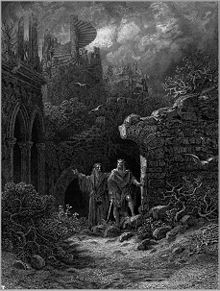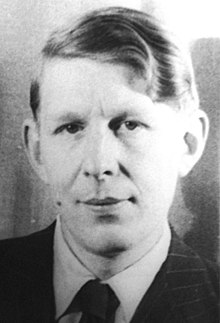Poetry
Poetry uses forms and conventions to suggest differential interpretation to words, or to evoke emotive responses. Devices such as assonance, alliteration, onomatopoeia and rhythm are sometimes used to achieve musical or incantatory effects. The use of ambiguity, symbolism, irony and other stylistic elements of poetic diction often leaves a poem open to multiple interpretations. Similarly figures of speech such as metaphor, simile and metonymy create a resonance between otherwise disparate images—a layering of meanings, forming connections previously not perceived. Kindred forms of resonance may exist, between individual verses, in their patterns of rhyme or rhythm.
Poetry genre
>> Narrative poetry Narrative
poetry is a form of poetry that tells a story, often making use of the voices
of a narrator and characters as well; the entire story is usually written in
metred verse. Narrative poems do not have to follow rhythmic patterns. The
poems that make up this genre may be short or long, and the story it relates to
may be complex. It is normally dramatic, with objectives, diverse characters,
and metre. Narrative poems include epics, ballads, idylls, and lays.
Narrative
poetry is a form of poetry that tells a story, often making use of the voices
of a narrator and characters as well; the entire story is usually written in
metred verse. Narrative poems do not have to follow rhythmic patterns. The
poems that make up this genre may be short or long, and the story it relates to
may be complex. It is normally dramatic, with objectives, diverse characters,
and metre. Narrative poems include epics, ballads, idylls, and lays.
Some
narrative poetry takes the form of a novel in verse. An example of this is The
Ring and the Book by Robert Browning. In terms of narrative poetry, a romance
is a narrative poem that tells a story of chivalry. Examples include the
Romance of the Rose or Tennyson's Idylls of the King. Although these examples
use medieval and Arthurian materials, romances may also tell stories from
classical mythology.
Shorter
narrative poems are often similar in style to the short story. Sometimes these
short narratives are collected into interrelated groups, as with Chaucer's TheCanterbury Tales. Some literatures contain prose narratives, and the Old Norse
sagas include both incidental poetry and the biographies of poets. An example
is "The Cremation of Sam McGee" by Robert Service
>> Lyric Poetry
Lyric poetry is a formal type of poetry which expresses personal emotions or feelings, typically spoken in the first person.The term derives from a form of Ancient Greek literature, the lyric, which was defined by its musical accompaniment, usually on a stringed instrument known as a lyre. The term owes its importance in literary theory to the division developed by Aristotle between three broad categories of poetry: lyrical, dramatic and epic.
>> The Dramatic Monologue
Dramatic monologue, also known as a persona poem, is a type of poetry written in the form of a speech of an individual character. M.H. Abrams notes the following three features of the dramatic monologue as it applies to poetry
- A single person, who is patently not the poet, utters the speech that makes up the whole of the poem, in a specific situation at a critical moment […].
- This person addresses and interacts with one or more other people; but we know of the auditors' presence, and what they say and do, only from clues in the discourse of the single speaker.
- The main principle controlling the poet's choice and formulation of what the lyric speaker says is to reveal to the reader, in a way that enhances its interest, the speaker's temperament and character.
Poetic license
Poetic license(also known as art licenselo, historical license, dramatic license, artistic license, narrative license, licentia poetica, or simply license) is a colloquial term, sometimes a euphemism, used to denote the distortion of fact, alteration of the conventions of grammar or language, or rewording of pre-existing text made by an artist in the name of art.Personification
In the arts, personification means representing a non-human thing as if it were human. Personification gives human traits and qualities, such as emotions, desires, sensations, gestures and speech, often by way of a metaphor.
Personification is much used in visual arts. Examples in writing are "the leaves waved in the wind", "the ocean heaved a sigh" or "the Sun smiled at us". In easy language personification is just giving an example of a living being for a non living thing. "The wind shouted". Obviously the wind cannot shout, only people can. This is what is called personification.
A few more examples of personification in sentences:-
- The flame of the candle danced in the dark.
- The stars danced playfully in the moonlit sky.
- Opportunity was knocking at her door.
Poem "I wandered lonely as a cloud"
The poem was inspired by an event on 15 April 1802, in which Wordsworth and his sister Dorothy came across a "long belt" of daffodils.
>> William Wordaworth
William Wordsworth (7 April 1770 – 23 April 1850) was a major English Romantic poet who, with Samuel Taylor Coleridge, helped to launch the Romantic Age in English literature with their joint publication Lyrical Ballads (1798).
Bartleby, the Scrivener
>> Herman Melville
Herman Melville (August 1, 1819 – September 28, 1891) was an American novelist, short story writer, and poet of the American Renaissance period best known for Typee (1846), a romantic account of his experiences in Polynesian life, and his whaling novel Moby-Dick (1851). His work was almost forgotten during his last thirty years. His writing draws on his experience at sea as a common sailor, exploration of literature and philosophy, and engagement in the contradictions of American society in a period of rapid change. He developed a complex, baroque style: the vocabulary is rich and original, a strong sense of rhythm infuses the elaborate sentences, the imagery is often mystical or ironic, and the abundance of allusion extends to Scripture, myth, philosophy, literature, and the visual arts.
W.H. Auden
>> Funeral Blues
Stop all the clocks, cut off the telephone,
Prevent the dog from barking with a juicy bone,
Silence the pianos and with muffled drum
Bring out the coffin, let the mourners come.
Let aeroplanes circle moaning overhead
Scribbling on the sky the message He Is Dead,
Put crepe bows round the white necks of the public doves,
Let the traffic policemen wear black cotton gloves.
He was my North, my South, my East and West,
My working week and my Sunday rest,
My noon, my midnight, my talk, my song;
I thought that love would last for ever: I was wrong.
The stars are not wanted now: put out every one;
Pack up the moon and dismantle the sun;
Pour away the ocean and sweep up the wood.
For nothing now can ever come to any good.
Prefix/ Root/ Suffix
fragile (adj.) easily broken, shattered, or damaged; delicate; brittle; frail
Example: The old lady looks very fragile.
fragment (n.) a part broken off or detached
Example: Every fragment in perpetuity is instantaneous.
frailty (n.) moral weakness
Example: Despite his age and frailty, he did not die.
-scri- "write"
prescription (n.) a direction, usually written, by the physician to the pharmacist for the preparation and use of a medicine or remedy
Example: The prescription of drugs is a doctor's responsibility.
scrivener (n.) a person who writes out deeds, letters, etc; copyist
Example: Bartleby, the scrivener must be the most famous short fiction in American literature.
description (n.) a statement, picture in words, or account that describes; descriptive representation
Example: A description about a product should not mislead the customers.
tri- "three"
triangle (n.) a closed plane figure having three sides and three angles
Example: The shape of earrings is triangle.
triathlon (n.) an athletic contest comprising three consecutive events, usually swimming, bicycling, and distance running
Example: Triathlon became an Olympic event in 2000.
gon- "side, tangle"
gondola (n.) a long, narrow, flat-bottomed boat having a tall, ornamental stem and stern and sometimes a small cabin for passengers: used especially on the canals of Venice, Italy
Example: The Venetian gondola is as free and graceful in its gliding movement as a serpent.
trigonometry (n.) the branch of mathematics that deals with the relations between the sides and angles of plane or spherical triangles, and the calculations based on them
Example: He received a low mark for trigonometry.
nom- "name"
nome (n.) one of the provinces of ancient Egypt
Example: In 1925, a deadly diphtheria epidemic broke out in Nome, Alaska.
nominate (v.) to propose (someone) for appointment or election to an office
Exampel: The president nominated him Ambassador to Japan.


沒有留言:
張貼留言